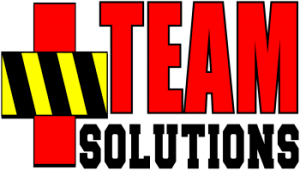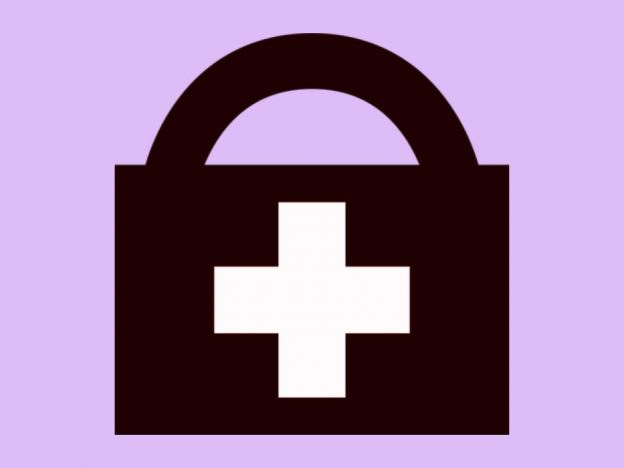I've Been Assigned to an Emergency Operations Center (EOC) ...
Have you been tasked by your agency to show up and serve in an Emergency Operations Center (EOC) for a current incident or upcoming event?
We've got you covered. Everyone was new once and as long as you stay within your level of training and ask questions, you'll be fine.
This page is full of useful resources designed to help you confidently make an immediate impact.
To start, download and print your own Crisis Quick Start Checklist, below:
Next,
- Read and bookmark the rest of this page and if time permits,
- Enroll in and take this quick course: "EOC Fundamentals Online Training."
Those steps will help demystify emergency operations and equip you with the basic framework to perform with confidence.
What does an Emergency Operations Center (EOC) do?
An Emergency Operations Center or EOC is typically a physical or virtual meeting space that is used to support and coordinate planned and unplanned events.
Major EOC activities consist of:
- Preparing for unplanned events (crises)
- Planning for special events (conferences, parades, etc.)
- Maintaining situational awareness
- Coordinating resources (people and things)
- Supporting and monitoring the incident/event
During a crisis, the folks managing an incident 'at the ground level' often need support and assistance with coordination. Finding this, fetching that, etc.
This is where Emergency Operations Centers (EOCs) can step in and create a ton of value. Or not.
Both in the public and the private sectors, EOC's (a/k/a: war rooms, situation rooms, nerve centers, etc.) all have several things in common which help them resolve the incident instead of making it worse.
While you're browsing, be sure to enroll in my online training course, Emergency Operations Center (EOC) Fundamentals.
The online course explains - in quick and simple terms - those key factors that help make an EOC's efforts successful.
Completing the course takes less than 1-hour, includes a downloadable certificate and is ideal for those in the public and private sectors.
If any of the below conditions apply to you, I recommend you enroll in the course:
- You are currently expected to serve in an EOC
- You expect to someday be tasked with serving in an EOC
- You work at the operational level (or policy level) and want to know what in the heck the EOC's role is
- You want to know how best to develop your own EOC model using best practices
A glance at the available lessons:
- Introduction to Emergency Operation Centers
- EOC v. ICP v. Policy
- Functions of an EOC
- Situational Awareness in an EOC
- Information Management in an EOC
- EOC Documentation
- Demobilization & Recovery
- Summary – Emergency Operations Center (EOC) Fundamentals
Enrollment in this foundation course is available for groups and individuals and once enrolled, you'll have access for 1 year.
If improving your crisis leader education is important, enroll in EOC Fundamentals Online Training or contact me below for advanced training options.
Documents Used in an Emergency Operations Center (EOC)
Supporting and coordinating an emergency can be done successfully off of the bed of a pickup truck or in a crystal palace full of
Comprehensive Emergency Management Plan (CEMP)
The CEMP details the four phases of emergency management:
Mitigation - Threat and hazard analysis, plus fixing what needs fixing, and replacing what needs replacing.
Preparation - Organizing, training and equipping for what could hurt you, previously identified in the Mitigation phase.
Response - Reacting, then managing the crisis at hand.
Recovery - Resolving and reflecting on the crisis by establishing your organization's or community's new normal.
Note: The phases of emergency management focus chiefly on the organization. For more insight and comprehension on emergency management at the individual leadership level, read my book "The Response Leadership Sequence - Empowering and Improving Your Leadership Before, During and After a Crisis."
Emergency Operations Plan (EOP)
An EOP is the playbook for the Response phase of the CEMP.
- An EOP usually addresses all-hazards by including annexes at the end for specific threats like school shootings, cyber attacks, lost persons, etc.
- EOP's are sometimes called different things, like Crisis Management Plans, Emergency Plans, etc.
Need help with developing an EOP? Contact me here.
Incident Command System (ICS) Forms Workbook
Job aids and templates should be used to optimize communication, organization and planning.
- Formal communication inside an EOC should be consistent and rely on universal, common-language as much as possible.
- The current best-practice for managing planned and un-planned events is with Incident Command System (ICS) Forms.
- These forms provide the basis for the creation of Action Plans used in the response.
Download your own customizable ICS Forms Workbook - free - of charge - by clicking the button below.
Incident Command System (ICS) Position Descriptions
Each position within an EOC has different but complimentary roles and responsibilities.
In addition to the general responsibilities of serving in an EOC each position has specific requirements that should be addressed.
Though intended for incident response operations instead of EOC support and coordination, the below job-aids are frequently to guide the participant on their expected activities and outcomes.
- It's important to note that the ICS roles in an Incident Command Post (ICP) are implemented differently than similar roles in an EOC. Be sure to understand and adhere to local EOC requirements and expectations and use the below descriptions as a guide, not a policy.
Download a PDF of individual ICS position descriptions below. (opens in new tab)
EOC Online Training
Other EOC Training
The training presented here has been created and assembled by TEAM Solutions subject-matter experts based on our experiences and insights working in and around EOCs.
There are other EOC-related courses available through other vendors - some at little or no cost to the participant because the course is government grant-funded, etc.
Some of these government courses offer a good grasp of the subject matter and good instruction (disclaimer: I know because I teach some of them) and may be a good fit for your government-sector agency.
Therefore, if free, government training is what you're looking for, I recommend the EOC MGT-346 in-person course offered by TEEX.
The challenge with most government training, however, is their reliance on:
- inflexible, federalized curriculum,
- stringent requirements to host or attend the actual course and the
- restraints that deliver a true transformation for the participant.
In that regard, TEAM Solutions training is a better fit for most organizations that require a more value-added experience.
EOC Development Services
Any organization that has a responsibility to manage a crisis should have an Emergency Operations Center, even if it is called something different.
Private sector organizations are particularly vulnerable to an escalating crisis due to not having an organized EOC plan.
Whether you want to Build, Maintain, or Grow the role of an EOC in your organization, we're here to help.
Below are some of the services available to assist your private or public sector organization successfully manage unplanned crises and planned events with an established EOC.
Crisis Quick Start Checklist
In a hurry? Grab this free 1-page checklist for starting, managing and ending a crisis.
NOTE: Some of the action items refer to topics that I detail in my book, "The Response Leadership Sequence." For the proper context, you'll need the book, too. And keep track of it, okay? Only one PDF is sent per user.
Contact
Let us help you. Start the conversation by contacting me below.




